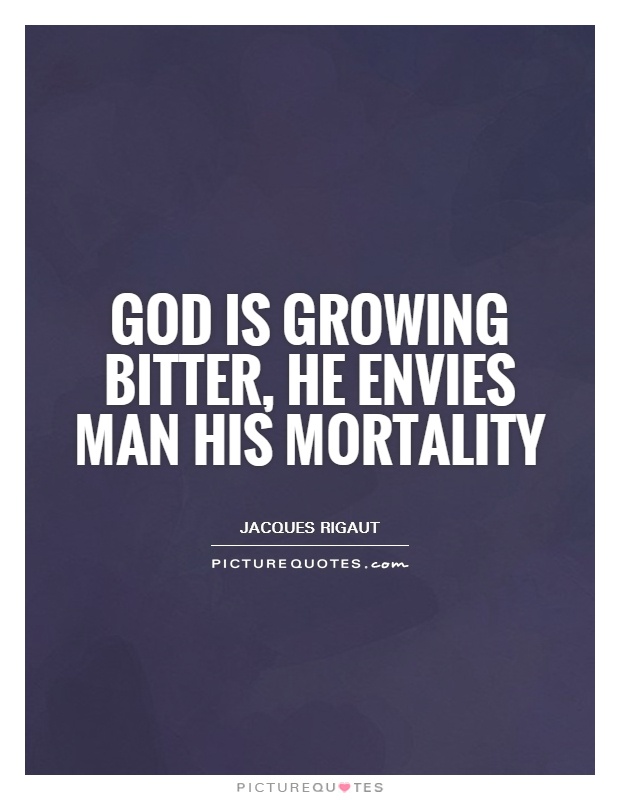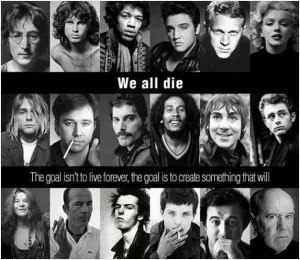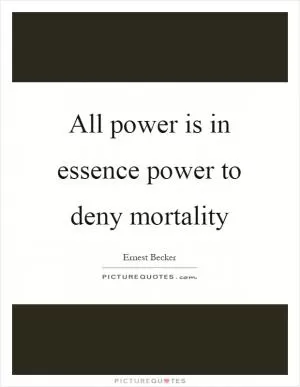God is growing bitter, he envies man his mortality

God is growing bitter, he envies man his mortality
Jacques Rigaut was a French writer and poet known for his nihilistic and provocative views on life and death. He was a member of the Surrealist movement and was known for his dark sense of humor and disdain for societal norms. Rigaut's writings often explored themes of mortality, existentialism, and the absurdity of human existence.The statement "God is growing bitter, he envies man his mortality" can be interpreted in many ways, but in the context of Jacques Rigaut, it seems to suggest a sense of rebellion against traditional religious beliefs and a celebration of the human experience. Rigaut was known for his rejection of conventional morality and his embrace of the idea that life is ultimately meaningless. In this sense, the idea that God might envy man his mortality could be seen as a rejection of the idea of an all-powerful deity who controls the fate of humanity.
Rigaut's writings often expressed a sense of disillusionment with the world and a desire to break free from the constraints of society. He saw mortality as a liberating force, allowing humans to experience life to the fullest without the burden of eternal existence. In this way, mortality becomes a source of power and freedom, rather than something to be feared or avoided.
Rigaut's views on mortality can also be seen as a rejection of traditional religious beliefs that emphasize the afterlife and the idea of divine judgment. By suggesting that God might envy man his mortality, Rigaut is challenging the idea of a benevolent deity who watches over humanity and rewards or punishes them based on their actions. Instead, he celebrates the idea of human autonomy and the ability to create meaning and purpose in a world that is ultimately indifferent to our existence.












 Friendship Quotes
Friendship Quotes Love Quotes
Love Quotes Life Quotes
Life Quotes Funny Quotes
Funny Quotes Motivational Quotes
Motivational Quotes Inspirational Quotes
Inspirational Quotes